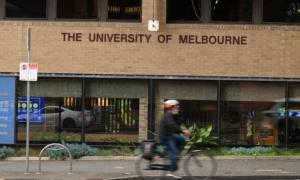Lower House Approves Government’s $3 Billion Student Debt Reduction Bill
The Bill will now be deliberated in the Senate.
The Australian government is set to lessen $3 billion in student debt, affecting over three million Australians, as the bill passed the lower house on Oct. 10.
Education Minister Jason Clare declared that the bill, concentrating on student debt relief, has successfully passed the House of Representatives and will now be reviewed by the Senate.
“This is a crucial step forward in easing the financial burden for millions of Australians,” Clare stated.
The bill will modify the indexation of Higher Education Loan Program (HELP) debts, connecting debt indexation to the lower of the Consumer Price Index (CPI) or Wage Price Index (WPI), following the Universities Accord recommendation.
Currently, HELP debts are indexed annually based on CPI, which can result in increases in student debt exceeding the borrower’s initial loan amount. The new framework aims to provide fairer repayment terms.
“The approval of this bill through the House is a significant victory for Australians grappling with student debt, and we’re optimistic that the Senate will take necessary actions to ensure its prompt implementation,” Clare added.
The bill was reintroduced in Parliament on Aug. 15, with Clare announcing government plans to eliminate last year’s 7.1 percent CPI indexation rate and substitute it with a lower WPI rate of 3.2 percent.
“We’ll also decrease this year’s 4.7 percent rate to 4 percent,” he mentioned.
Clare clarified that, for someone with an average debt of $26,500, this would reduce their loan by approximately $1,200 this year.
“For someone with a debt of $45,000, it means a reduction of about $2,000, and for a debt of $60,000, the reduction is almost $2,700,” he further explained.
He also highlighted that the revised methodology would apply to VET student loans, Australian apprenticeship support loans, student startup loans, ABSTUDY student startup loans, and the Student Financial Supplement Scheme.
Student Debt Scheme Could Impact Inflation
While the government anticipates this initiative will resonate with young voters, experts caution about financial implications.
Graham Young, Executive Director of the Australian Institute for Progress, contended that this could have adverse effects on inflation and government finances.
He also voiced worries that students may not notice significant changes due to the scheme.
“Chances are students won’t really perceive the reduction because their repayments won’t alter; they will still pay the percentage in line with their income. The loan will simply be paid off faster,” he conveyed to The Epoch Times.





